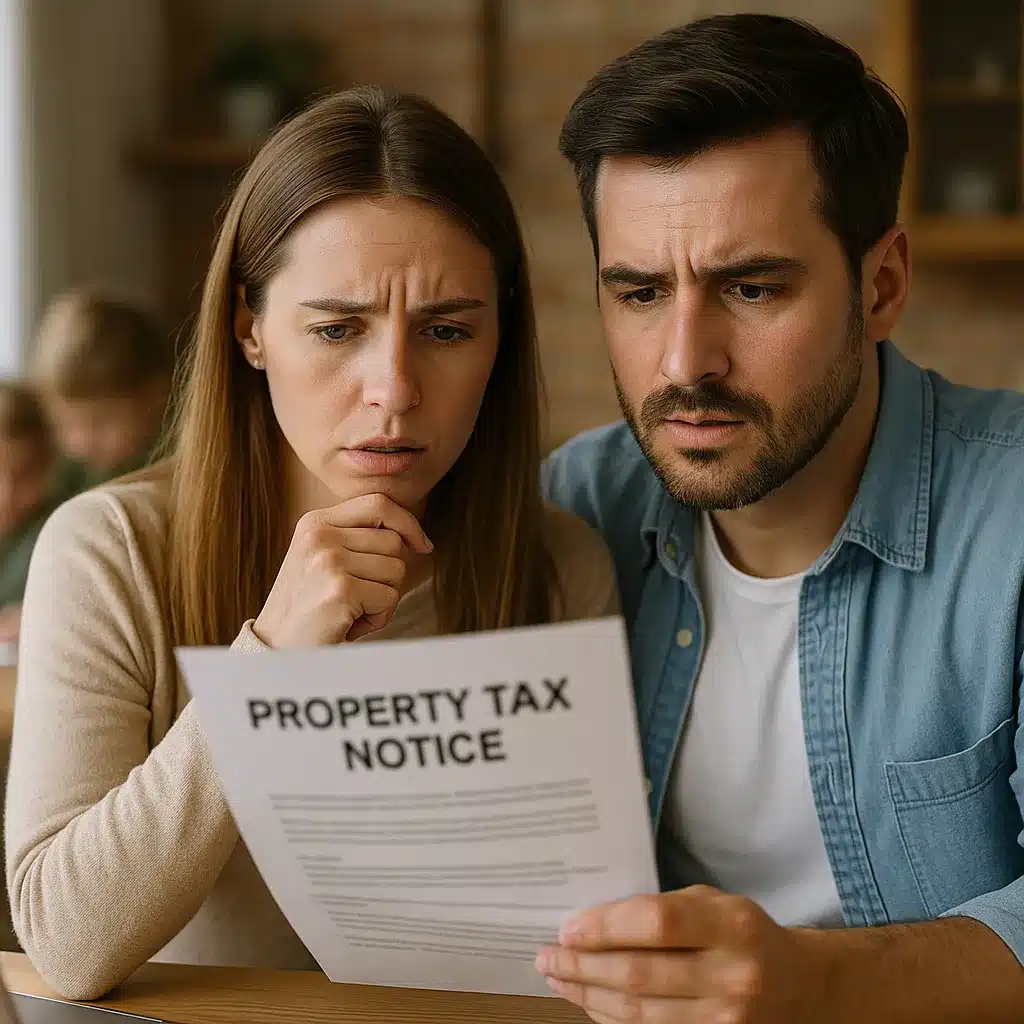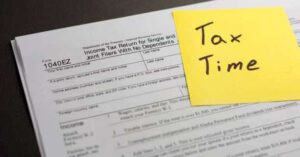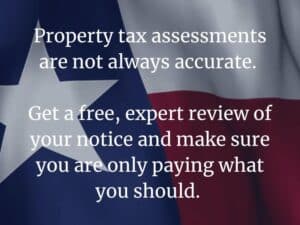Each spring, homeowners across Texas receive an important envelope from their local appraisal district. Inside is the Notice of Appraised Value, a document that quietly but powerfully shapes what you will pay in property taxes for the year.
At Texas Property Value Protest, we believe that no homeowner should feel left in the dark about something this important. This guide walks you through what your notice actually means, how to review it carefully, and what steps to take if the numbers do not seem right. Understanding your notice is not just helpful. It can save you hundreds or even thousands of dollars.
What Is the Notice of Appraised Value
The Notice of Appraised Value is issued by your County Appraisal District, typically between March and May. While it is not a tax bill, it determines the value upon which your property taxes will be based. The notice shows what the CAD believes your property was worth on January 1 of the current year. Every local taxing entity such as your city, your county, and your school district will use this value to calculate your upcoming property taxes. Ignoring the notice can be costly. Reviewing it carefully is your first line of defense against overpayment.
What Your Notice Includes
Your property tax notice typically contains several important pieces of information. It lists the market value of your home and the assessed (taxable) value after any exemptions are applied. It also includes any property tax exemptions currently on record, explains your right to protest the value, and gives you a clear protest deadline. That deadline is usually May 15 or 30 days after the notice date, whichever is later. What the notice does not include is the actual tax amount you will owe, which comes later once tax rates are set.
Reading Each Section of the Notice
Market Value vs. Assessed Value
The market value reflects what your CAD estimates your home could sell for on the open market as of January 1. The assessed value is your taxable value after exemptions or caps are applied, such as the ten percent homestead cap. If you qualify for a homestead exemption, your assessed value cannot rise more than ten percent per year, even if your market value increases significantly. It is crucial to understand both numbers to evaluate whether your taxes will change significantly.
Exemptions You May Qualify For
Exemptions are critical because they lower your taxable value. Common exemptions include the Residence Homestead Exemption, the Over 65 Exemption, the Disabled Person Exemption, and the Disabled Veteran or Surviving Spouse Exemption. If you are eligible for one of these and it is not listed, your tax bill could be much higher than necessary. Always check to make sure every exemption you qualify for is reflected correctly.
Protest Deadline
Texas gives homeowners a very narrow window to respond if they disagree with the appraisal district’s valuation. In most counties, the protest must be filed by May 15 or within 30 days of the notice date. If you miss this deadline, you lose the ability to challenge the value for that year. It is a firm deadline with very few exceptions, so mark it on your calendar as soon as you receive your notice.
Common Mistakes to Watch For
Incorrect Property Details
Mistakes in the property record can unfairly inflate your value. These errors include wrong square footage, additional structures that do not exist, or incorrect construction year information. Even small inaccuracies can push your market value higher than it should be.
Missing or Dropped Exemptions
Life changes like refinancing or a title update can sometimes cause exemptions to drop off without your knowledge. Homeowners often assume that exemptions automatically transfer or stay in place, but that is not always the case. Always review your notice to make sure your exemptions are still listed.
Incorrect Ownership or Address
Mistakes in ownership or mailing address information can cause you to miss important deadlines or updates. If your name or address is wrong on the notice, you should contact your appraisal district immediately to correct it and ensure you stay informed.
If You Think the Value Is Too High
Gather Your Evidence
If you believe your market value is too high, the first step is to gather substantial evidence. This could include sales data from similar homes in your neighborhood, often called comparable sales or comps. It could also include photographs that show damage, deferred maintenance, or needed repairs, along with contractor estimates to support the cost of those repairs. Reviewing your CAD property record for mistakes is equally important. Organizing this evidence carefully makes your protest stronger.
File Your Protest
Protests can usually be filed online through your CAD’s portal, but you can also mail in Form 50 132. When filing, select both Incorrect Market Value and Unequal Appraisal as reasons for the protest. You should also request both an informal meeting and a formal Appraisal Review Board (ARB) hearing. Filing correctly keeps all your options open and improves your chances of success.
What to Expect at the Hearing
If you do not reach an agreement during the informal meeting, your case will move to a formal hearing before the Appraisal Review Board. This board is an independent panel that listens to evidence from both you and the appraisal district. You will have a chance to present your comps, your property photographs, and your supporting documents. Preparation is key. The better organized your case is, the stronger your chances of securing a fair reduction.
Why Reviewing Your Notice Matters Every Year
Even if your appraised value stayed the same from last year, that does not guarantee it is correct. Unchanged values can still be too high. Exemptions can quietly fall off without warning. Changes to your property or neighborhood that impact value may not be reflected accurately. At Texas Property Value Protest, we have reviewed thousands of notices and uncovered hidden errors that resulted in real savings for homeowners. Reviewing your notice every year is one of the easiest ways to protect your investment.
Need Help? We Are Here to Support You
At Texas Property Value Protest, we stand with homeowners because we believe no one should pay more than their fair share. We offer free appraisal notice reviews, exemption checks, and flat fee protest filing services. Our mission is to advocate for homeowners who might otherwise be overlooked by a complicated system. If you have questions or concerns about your notice, we are ready to help you through the process.






